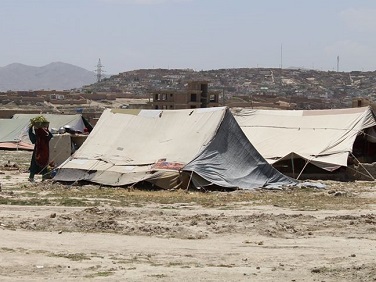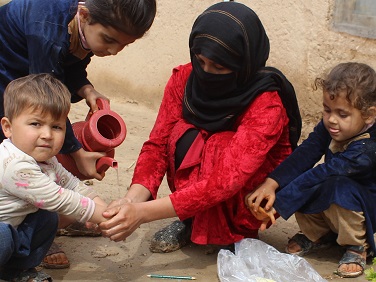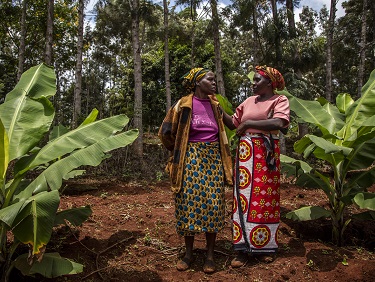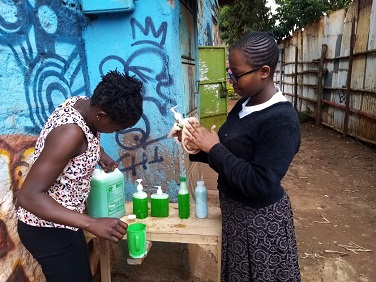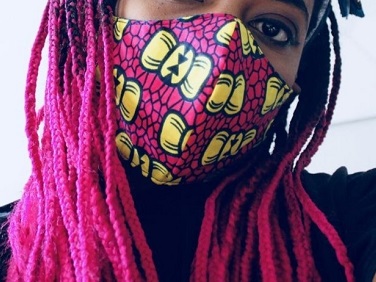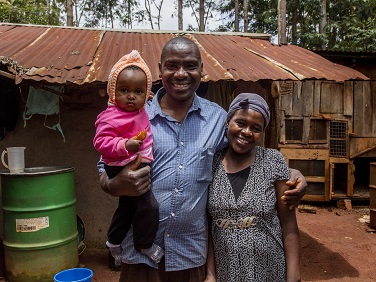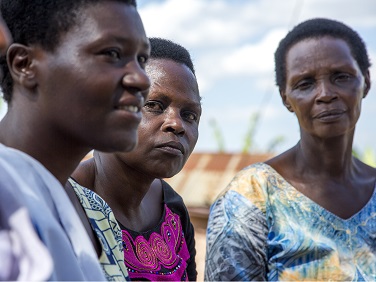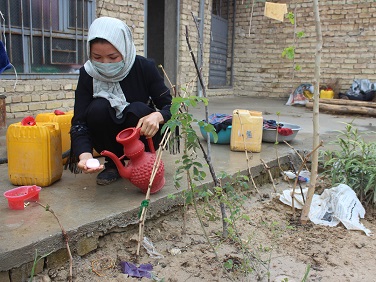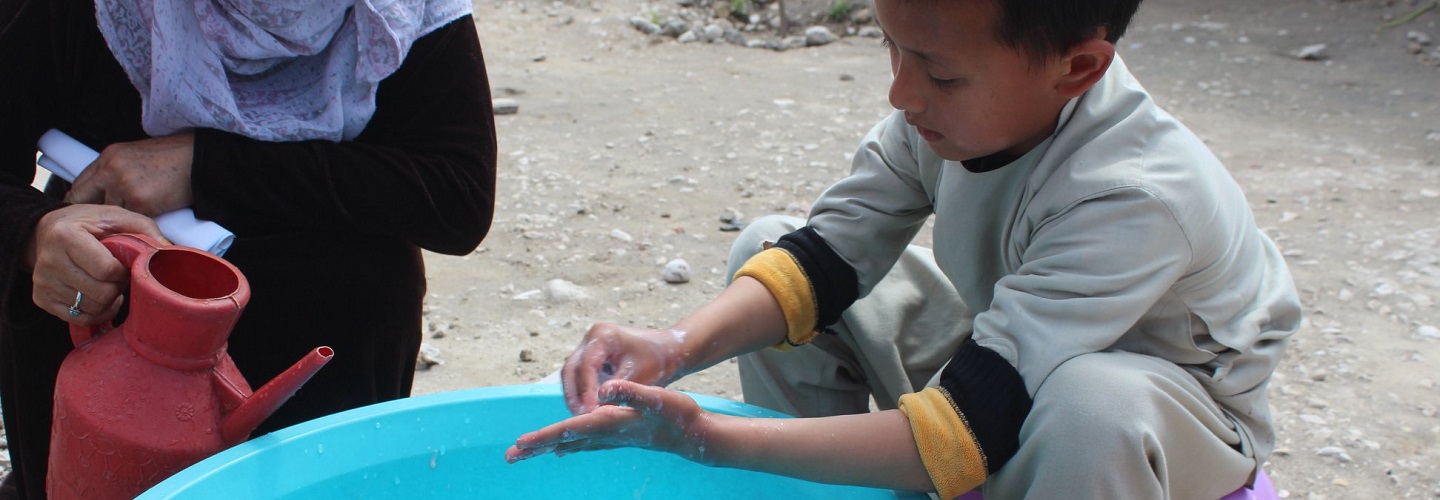
Coronavirus: information & updates
Coronavirus isn’t just a global health crisis – it’s a global economic crisis, too. That’s why Hand in Hand is doing everything we can to help our members build back better, stronger and more resilient than ever before.
Find out how below.
Afghanistan
Coronavirus has claimed thousands of lives and pushed Afghanistan’s health system to the brink and beyond. But ask our members what worries them most and the answer isn’t sickness. “The worries of poor people like us are more of hunger than of coronavirus,” says Sharifa, a 24-year-old Hand in Hand member, poultry farmer and mother of four.
Widespread unemployment, Taliban violence and coronavirus are fuelling a crisis greater than the sum of their parts, with the result that 11 million Afghans – more than a third of the country – are now classified as acutely food insecure. According to Hand in Hand’s research, most households in the areas we support have used up their savings and are now selling key assets such as livestock to keep from going hungry.
That’s why after distributing soap, sanitiser, face masks and virus prevention training to 65,000 poor and vulnerable Afghans – many living in camps for families fleeing conflict – Hand in Hand is shifting our focus back to what we do best: livelihoods. With your help, we’ll train thousands more women as poultry farmers, a vocation uniquely suited to our times.
Requiring little space and operational from home, poultry farming is ideal during lockdowns. And because most chickens are imported from outside Afghanistan, poultry is one of the few value chains in the country whose worth has actually increased since the outbreak of the virus. For Sharifa and others like her, however, their true virtue lies elsewhere: the nutrition they provide when other food supply chains break down.
Research: coronavirus fuels food security crisis in Afghanistan
Hand in Hand Afghanistan steps up fight against Covid-19
Meet Sharifa, who has ‘peace of mind’ in turbulent times
Kenya
Hand in Hand recently polled 800 members in Kenya, 80 percent of them women, to find out how Covid-19 lockdown measures were impacting their businesses. The results, even by 2020 standards, were alarming. Incomes had dropped by 67 percent. Savings were down 69 percent. A full quarter of businesses had closed. And the proportion of people living below the poverty line of US $1.90 a day had nearly doubled, from 44 percent to 83 percent.
Never mind waiting for vaccines to return the world back to normal – livelihoods programmes are essential right now. That’s why after delivering soap, face masks or coronavirus advice to nearly 75,000 members during 2020, our teams in Kenya are back helping our members launch resilient microbusinesses, placing fresh emphasis on loans that will help them bounce back, as well as local and national supply chains that won’t disappear overnight.
Research: poverty rate doubles as coronavirus grips Kenya
Hand in Hand reaches thousands in Kenya with coronavirus advice
Meet Rhoda, fighting Covid-19 in Kenya
Tanzania
Hand in Hand staff in Tanzania spent the first months of lockdown reaching out to 13,000 members via phone and SMS, cascading health messages to every corner of our membership and beyond via Self-Help Group leaders. We also provided advice to help members pivot to soap and facemask production, and helped agricultural members source all the inputs they needed to keep their communities food-secure.
Today, we’re helping our members build back better, providing our usual business and skills training with a renewed emphasis on microbusiness resilience. Like in Kenya, safety measures include smaller group sizes, distancing between members, outdoor meetings, compulsory personal protective equipment and more.
More news
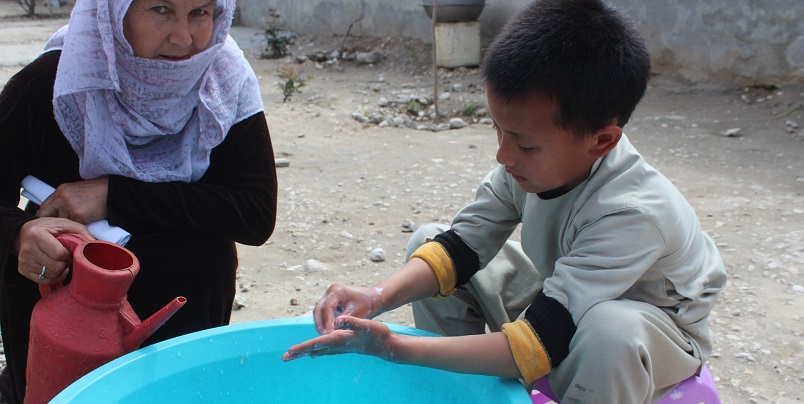
Let’s build back better
For families across the developing world, sickness is only one danger associated with coronavirus. Widespread joblessness, dwindling savings and, in some countries, acute food insecurity are also consequences of Covid-19.
To help them, we urgently need your support.
Donate
Get in touch
To find out more about we're responding to Covid-19 - or to talk about making a donation - please get in touch with one of our London-based staff.

Private donors
Charlie Strawa Fundraising ManagerCharlie has worked in the not-for-profit sector for nine years, building strategic relationships with individuals and organisations to meet their philanthropic objectives and drive societal change.
cstrawa@hihinternational.orgTel: +44 (0)207 5091

Institutions & foundations
Amalia Johnsson Deputy CEOAmalia heads up our programme development team. Before joining Hand in Hand she was Programme Manager at Plan International UK, spent several years at the OECD and worked in finance.
ajohnsson@hihinternational.orgTel: +44 (0)7508 075 601

